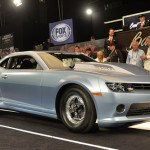This post has been gathering dust as a draft for seven months now. It looks like now is a good time to dust it off and finish it, it may go some small way to explain some of the back-story behind a pair of my previous posts (one and two).
I received as a 2011 Christmas gift the biography of Steve Jobs by Walter Isaacson on audio CD. I listened to it in May and June 2012. I found it answered some questions that had never really been nagging me but had always wondered about in the occassional moment from time to time ever since the Apple IIe was introduced and I bought an Atari instead.
The first question I never really asked myself aloud was “Why I am reluctant to buy an Apple product?” The practical answers were usually “Apple is too expensive for the product (the product was either overvalued compared to its utility or it was too exclusive for no particular reason)”‘; or “None of my friends/coworkers/employers use them and therefore I’d have to learn an operating system and software that is not immediately useful to me.” Rule #1 applied to the Apple IIe (although we did have a couple in our high school), the Macintosh (which appeared in our high school computer labs and came closest to being a possible exception to Rule #2), and the iPod (it looked too simplistic for the price although apparently it works well as an MP3 player; but thanks also for revolutionizing the music industry, producers of another series of products I use only infrequently!). In the case of the smart phone, the iPhone debuted while I was in Japan and was not available to me until I moved back to the U.S. Upon returning to the States I rushed to the AT&T store as soon as I could to acquire an iPhone, only to discover the data plan was $90/month! So a permutation to rule #1 was in effect, the ‘necessary accessories’ were overpriced for the perceived value. To this day I do not own a smart phone. As I mentioned, I recently bought an iPad Mini for the Foreflight aviation application, and I’m actually quite pleased with it for the Foreflight application and for casual web-browsing. Actually, when it comes to casual web-browsing, it annihilates my Netbook, as the Netbook takes several minutes to boot up and log in; where the iPad is available within seconds of picking it up off the table. For PowerPoint, Word, and Excel, the Netbook still rules the roost when I need an ultra-portable platform. But I digress a bit. What was illuminating about the Jobs biography that shed light on my early apprehension about Apple?
In a nutshell, Jobs returned time and again to a need for Apple to “Control the users’ experience” (Why 1984 won’t be like 1984, indeed? I cede control of my experience to Apple rather than to Big Brother?). He regarded his products as ‘Superior’ and overall his attitude kind of reminds me of the attitude some teenagers (or even some people who have physically matured but are still adolescent in heart and mind) affect: “I’m the smartest kid in the room, and if you don’t want what I’m selling, you’re the one who’s wrong because I’m smarter than you are.” After I had finished this audiobook I coined my computing continuum which I described in the Silicon Rubicon post. While I prefer to operate as far away from the Apple side of the continuum as I possibly can, I admit there are times when an Apple product fits the bill and is the most useful in some circumstances.
As for Steve Jobs as a person, I can’t say I’d’ve been happy to have known him personally, but then the feeling would likely be mutual. There were aspects of his personality that sound like they served him well. His dogged determination to perfect his products is probably the trait I admire the most and the one we likely have most in common. Kudos to him for ‘Letting it all hang out,’ so to speak, in his biography. Once upon a time I would have (and in fact have) done the same. I no longer think it to be terribly useful to repeat all of the inhibiting traits each of us frail humans display. It’s useful to highlight character flaws only to remind the reader that “Yes, in fact this person was a human being just like you.” Otherwise to not do so may result in a tendency for future readers who did not know the human to tend to elevate the person’s stature in the reader’s mind unnecessarily. Let the world have the positive from the outcomes I achieved and let me take the preponderance of my embarrassments to the grave.
Steve Jobs’ particular traits as a leader gave me the most headache. Obviously when we as a society arrived at smart phones and tablet computing, his point of view on the design and function of those devices won the current day. But the way he finally arrived at the pinnacle? His scorched earth leadership (if you’ll take ‘Earth’ to be a metaphor for his employees) seems like it resulted in a lot of unneeded angst in his wake in his early days at Apple. Perhaps the best thing that happened to him (and to Apple) was being fired; to some extent it seems to have made Jobs a better (if only marginally more tolerable) person and entrepreneur. Another issue was that while he seemed to have a decent idea of the way the end-state Apple products should look, I did not get a sense that Jobs was actaully involved in the fundamental engineering that got the products working; Steve Wozniak apparently was the technical brains of the early organization and Jobs appeared to be able to find exemplary talent that could package the technology into the design. That in itself is a mark of good leadership. His corporation became indisputably successful, another mark of successful leadership.
At the end of the day, in the 1980s I passed on an Apple for an Atari; now I own an iPad and use it while the pair of Atari classic video game systems I have are sitting in boxes gathering dust. What goes around is sometimes just gone in later days. Sometimes what almost went away comes roaring back when the time is right.
I’m not sorry to know now what I know about the late Steve Jobs. Somehow I don’t really think I’m a better person for knowing all of the details presented in the biography. The bio was long on ‘What happened’ and short on ‘How it happened’ from the technical sense, but then such information would have been divulging Apple trade secrets, so I understand the omission. All the biography did was, as I mentioned, answer some of my personal questions that were really mere curiosities. I validated some hunches. I suppose there’s some value in that. I now know a bit more why I can trust my hunches, at least with computers.
2013-05-27 Update: Corrected spelling/grammar (“know know” to “now know”).



